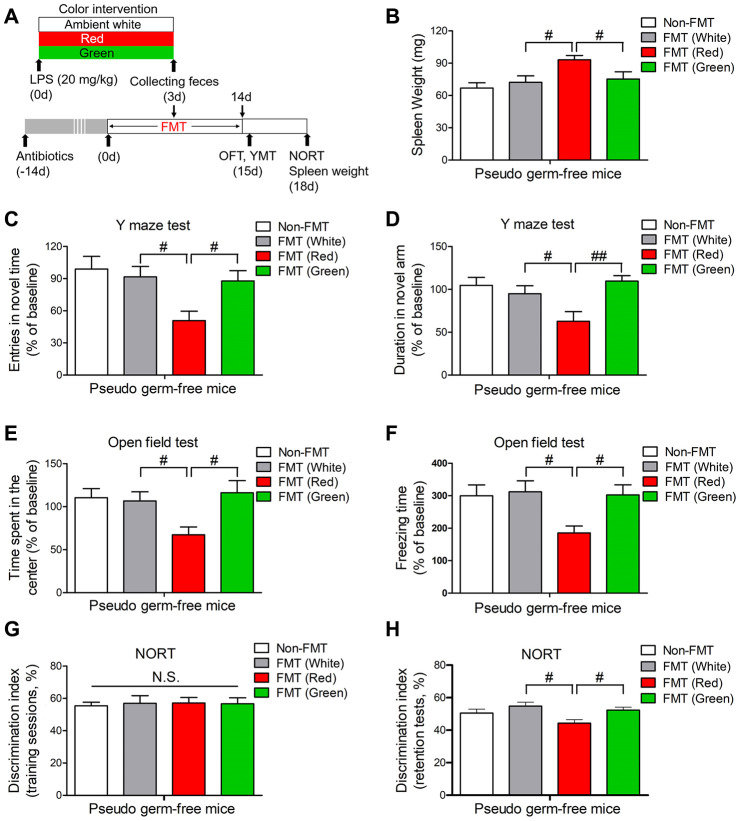Figure 8.
Splenic and behavioral effects of fecal microbiota transplantation on pseudo germ-free mice. (A) Treatment schedule. Mice received drinking water containing large doses of antibiotics for 14 consecutive days. Thereafter, the mice were orally treated with fecal microbiota from 20 mg/kg LPS-treated septic mice that had been exposed to light for three days. On days 15 and 18, behavioral tests were performed. Then, the mice were euthanized and their spleens were collected and weighed. (B) Pseudo germ-free mice transplanted with fecal microbiota from mice that had been treated with LPS and then exposed to red light displayed significant splenomegaly. They also exhibited remarkable cognitive impairment, as demonstrated by the reduced frequency of entering the novel arm (C) and the reduced time spent in the novel arm (D) in the Y maze test, the reduced time spent in the center (E) and the reduced freezing time (F) in the open field test, and the reduced time exploring the novel object (G, H) in the NORT. Data are shown as the mean ± SEM (n = 6-7/group). N.S., not significant, #P < 0.05, ##P < 0.01.

